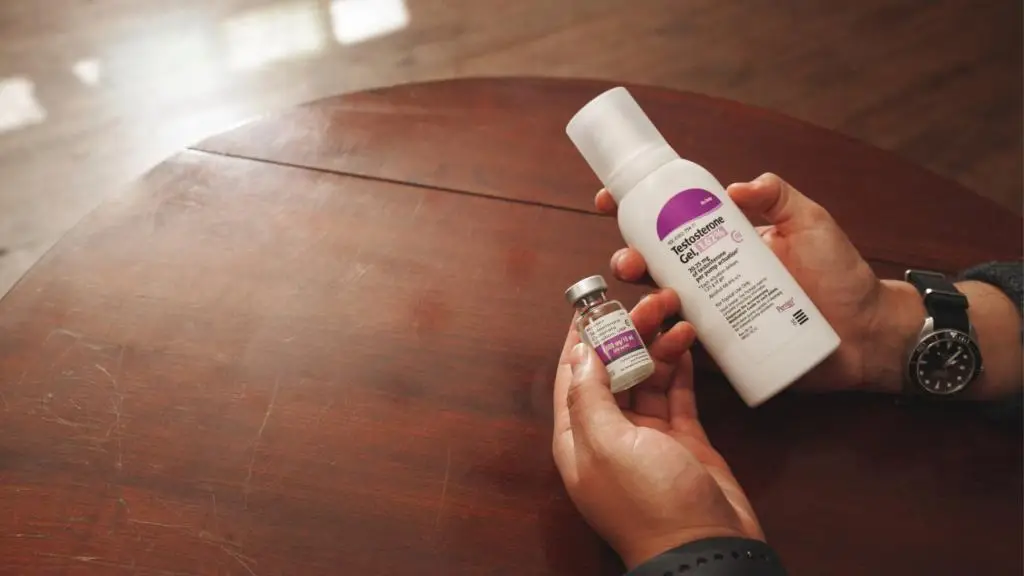Legally Reviewed by Erich Drotleff, JD, MPH
Written by Bowie Rowan (they/she/he)
You’re ready to start your gender-affirming hormone therapy journey. Now, you may be asking yourself, how does this all work? Does my therapist need to help me get access to the testosterone that I need? Do I have to have a therapist to get started? Will I need a letter from a psychologist or a mental health evaluation to get medications like T?
In general, the answer at Plume is no. We help you get the gender-affirming care you need without jumping through the extra, unnecessary hoops of obtaining consent from a mental health clinician.
If you’re hoping to start testosterone injections, pills, creams, patches, or other medications, you can have an initial consultation to make sure hormones are a good choice for you (this consultation is at no cost to you if the doctor assesses that gender-affirming hormones aren’t safe for your health or aligned with your gender transition goals). Our medical providers will work with you to prioritize your safety and discover what works best—T shot or not—specifically for you as a transman, FTM, gender non-conforming (GNC), or masc nonbinary person.
Join thousands of trans and non-binary folks getting expert gender-affirming care with Plume.
Table of Contents
How does informed consent work?
Here’s how it all works: At Plume, we use a model called “informed consent” in order to provide you with gender-affirming hormone therapy (GAHT, also called HRT or hormone replacement therapy). The informed consent model places priority on your bodily autonomy and your ability to understand and assess the benefits, risks, limitations, alternative options, and uncertainties involved with any form of medical treatment. Based on the state in which you reside, we may need to provide a state specific informed consent agreement as well our standard Plume informed consent document.
How does informed consent differ from what has been commonly referred to as the “standard model” of care? Traditionally, clinicians require a letter of support based on an assessment from a mental health provider in order for the clinician to then be able to provide hormones to any trans or GNC person seeking HRT. This standard model can be incredibly time intensive, expensive, and also not in line with what each trans person needs or their experience.
Many transgender people experience gender dysphoria. Research (and our community members’ lived experiences) show that hormones can not only help promote gender euphoria but also be lifesaving in many cases. However, not all trans and gender nonconforming people experience gender dysphoria. And not all of us end up seeking hormones or surgery in order to address it.
Why doesn’t the old model work for trans people?
The old standard model of care was rooted in a misunderstanding of the diversity of the trans experience and the disempowerment of trans autonomy. It also made access to hormone therapy ineffective and inaccessible for many of us who don’t fit within the bounds that clinicians decided makes a trans person eligible for GAHT or not. For example, the outdated standards used to require that someone live for one year in their gender identity before accessing medical support. This isn’t appropriate, possible, or realistic for many of us.
The informed consent model reflects the fact that each trans person’s experience is unique. It’s up to the person seeking hormone therapy and their clinician to figure out what medical, mental health, and community support is needed for them throughout their gender journey.
What does this mean in practice?
Informed consent means that you will have access to your hormone prescription after a visit with a knowledgeable medical provider. If you live in a state where access to testosterone is limited, your Care Team will work with you to make sure that you can meet the requirements of that state. Testosterone is a controlled substance, which means that there are stricter regulations about how it is prescribed. You can read more about why T is a controlled substance here.
If you are starting T with Plume, your first step is to schedule an initial consultation. During this appointment, you’ll discuss your questions, concerns, and goals for hormone therapy. If your provider agrees that T would support your health needs, you will work together to create a treatment plan that makes sense for you. You don’t need a letter of support from a mental health clinician that validates what you already know and have shared with our medical providers. Plume believes that you shouldn’t have to jump through hoops or deal with unfair gatekeeping in order to access your medication.
At Plume, you work with clinicians who are here to help guide you with their experience and knowledge and offer support along your GAHT journey, trusting that you know what’s best for you along the way.
Ready to level up your gender transition?
Get gender-affirming care made by trans people, for trans people.
Bowie Rowan (they/she/he) is a writer and multimedia artist based in Tulsa. Their work has previously appeared at Insider, Electric Literature, the Normal School, the Missouri Review, the Fabulist, and elsewhere. They love to write about failure at Ask a Failure and interview other writers on Swell. Currently, they’re seeking representation for their first novel and working on a memoir about travel, grief, gender, the environment, and joy. You can experience more of Bowie‘s work and get in touch at bowierowan.com.
As the largest provider of gender-affirming care for the trans and nonbinary community, Plume is committed to providing information about many types of information, including questions about hormones like estrogen and testosterone, gender transitioning tips and experiences, and guidance on social transition and self-care.
While we strive to include a diverse range of voices and expertise, not everything will be for every person. Each individual’s experience is unique, and the information Plume provides is not intended to be a substitute for professional medical advice, diagnosis, or treatment.
Always first seek the advice of your primary and/or specialist physician, the Plume Care Team, or other qualified health provider with any questions you may have regarding a medical condition, your mental health and emotional needs, or your health care needs regarding gender-affirming hormone therapy. If you are experiencing an emergency, including a mental health crisis, call 911 or reach out to Trans LifeLine.



